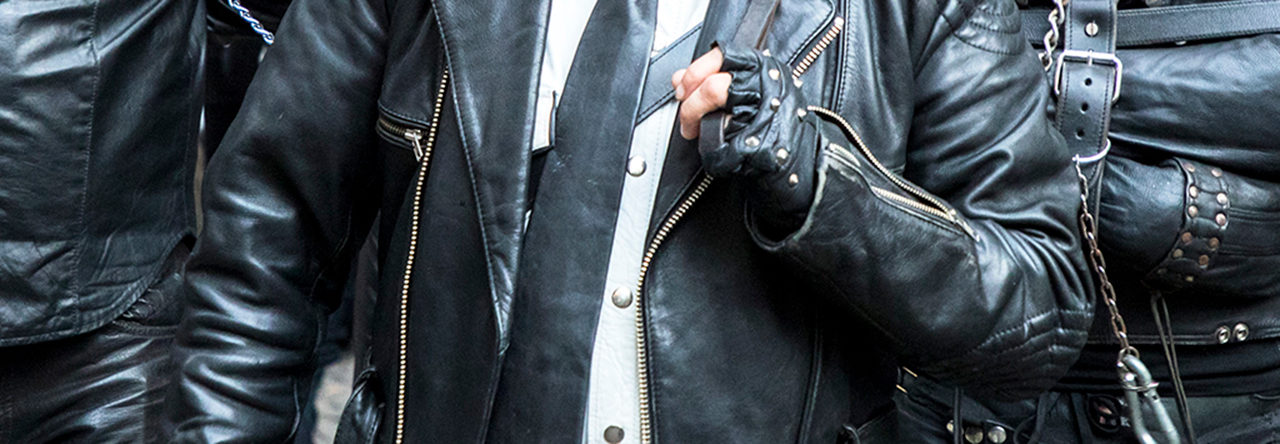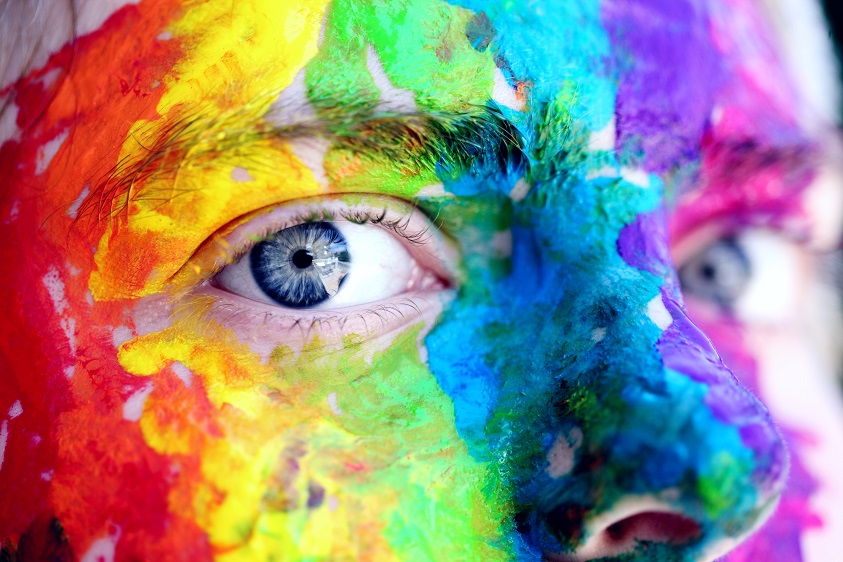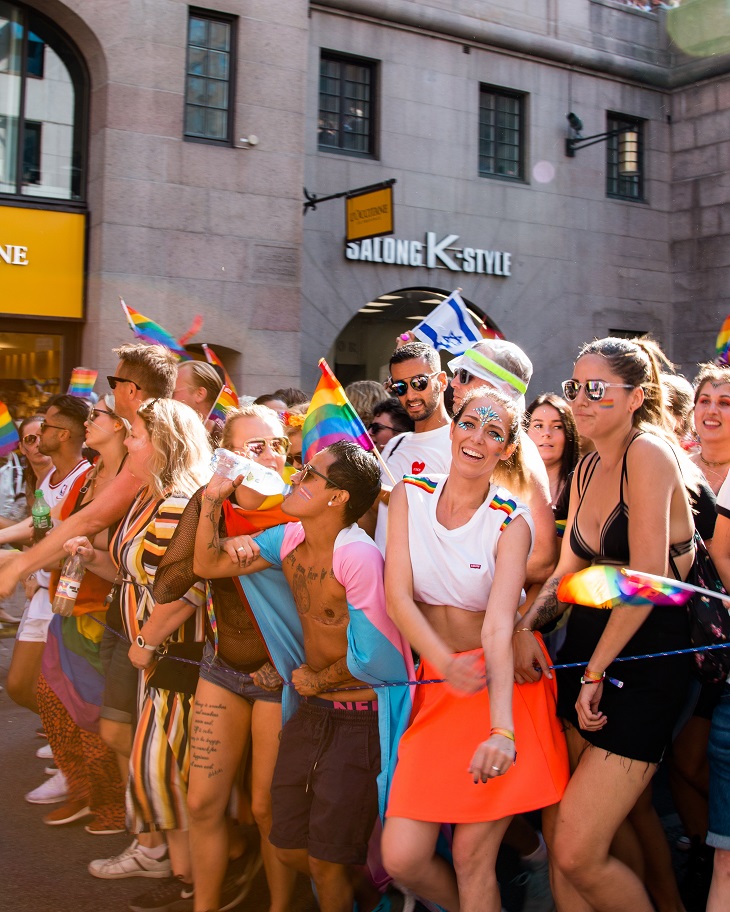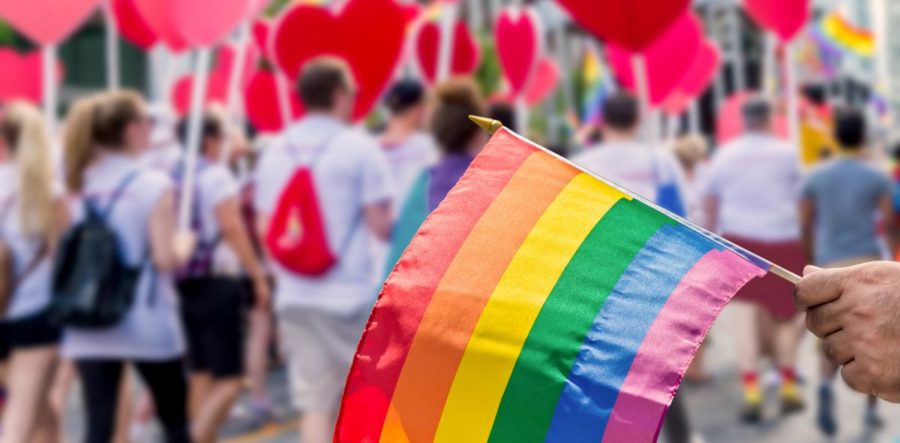Who you fall in love with is something that only concerns
you. Moreover, there is nothing you can do about it. It happens to you. Men can
love men, and women can love women. And if, as a man, you don’t feel at home in
your own body and want to become a woman, or the other way around, you can’t do
anything about it. If people are discriminated against for that reason, it
makes them extremely powerless. Especially if the government doesn’t act
against it or if it promotes this discrimination.
What’s the problem?
There are 193 countries in the world that are members of the
United Nations.
- In 70 countries, homosexuality is a criminal
offence
- In 44 countries, the same applies to women
- In at least six countries you can even be
sentenced to death
- LGBTQ rights are included in the constitution in
only 9 countries
- Same-sex marriage is recognised in 26 countries
Development
In 72 countries it is a crime to have a relationship with someone of the same sex. In 45 countries, people have been arrested for their sexual orientation in the past three years. This is unacceptable. That is why Amnesty is fighting against discrimination against LGBTQ’s. Because if we stop seeing each other as people with the same rights, repression will only increase.
LGBTQs are victims of human rights violations all over the
world.
- LGBTQ’s can be put to death by the state.
- They regularly have difficulty accessing the
labour market, housing or care.
- They could lose custody of their children.
- Sometimes LGBTQ’s asylum is refused
- In captivity, they are often the victims of rape
and other forms of torture.
- In many countries, LGBTQs are threatened because
they are campaigning for their rights.
More violence against LGBTQs
Small steps are being taken worldwide to combat
discrimination against sexual minorities. In 85 countries, the authorities are
taking action to protect them, for example by combating discrimination in job
search.
At the same time, however, the last year has seen them being
treated in an increasingly hostile manner. We also see violence against LGBTQ’s
reviving. Three examples.
Chechnya: no place for gays
In April 2017, the independent and renowned Russian
newspaper Novaya Gazeta delivered shocking news, which was subsequently
confirmed by other reliable sources. The newspaper reported that the
authorities in the Russian republic of Chechnya had started a witch hunt
against (alleged) homosexual men. More than a hundred men were allegedly locked
up in secret prisons, tortured and forced to say which other LGBTQ’s they knew.
At least three men would have been killed.
In religious-cultural conservative Chechnya, homosexuality
is a big taboo. Those who are ‘suspected’ of it run great risks, varying from
extortion by the police to (sometimes deadly) violence by the authorities or
their own family, which is encouraged by the authorities to ‘restore honour’.
The leader of Chechnya, Ramzan Kadyrov, denies the allegations and even the
existence of homosexuality in his republic.
Since the witch hunt, many victims and potential victims of
homophobic violence have fled or are trying to flee Chechnya. Western countries
are only scarcely willing to give them asylum.
Beaten up and squeezed
At the end of April 2017, the British newspaper The Guardian
spoke to a number of persecuted Chechen homosexuals. Ismail (not his real name)
was arrested by men in military uniform, after he had agreed with another man
via social media to meet each other. They drove him to a forest, undressed him
and beat him up, breaking his jaw. They also filmed the horrific incident. Then
they threatened to put the video online and tell Ismail’s family that he was
gay, unless he would give them a large amount of money.
He did. But when the rumours about gay persecution in
Chechnya increased, Ismail fled the Russian republic. The police went looking
for him and told his mother that he was gay, which is a great shame for his
family. Ismail is now afraid that his own family will want to kill him.
What does Amnesty do?
Amnesty took action and organised a petition. In it, we call
on the Russian authorities to investigate the disturbing reports about the
abduction, torture and murder of homosexual men in the Russian republic of
Chechnya. We also call for steps to be taken to protect homosexual men in
Chechnya.
Indonesia: 85 floggings for gay couples
In Indonesia, sexual minorities are being treated with
increasing hostility. In the province of Aceh, on 17 May 2017, a gay couple was
sentenced to 85 caning, not least on the International Day against Homophobia.
And that is only because they love each other.
The two men were attacked by their neighbours. They had
entered their house, filmed the couple and then handed them over to the Sharia
Police. It is the first condemnation of homosexuality by a Sharia court since
October 2015, when Sharia law came into force in Aceh.
A cruel and humiliating punishment
Only Aceh knows Sharia law, the rest of Indonesia doesn’t.
Penalties include intimacy or sex if you are not married, extramarital sex, the
consumption and sale of alcohol, and gambling. Punitive battles are often
carried out in public places. There are large crowds who take pictures and
videos of it. This contributes to the humiliation and suffering of those who
have to endure this already cruel, painful and inhumane punishment. All
corporal punishment is prohibited by international human rights.
Bangladesh: men are ‘suspected’ of being gay
On 19 May 2017, an anti-terrorism unit of the police in
Bangladesh arrested 28 men on suspicion of homosexuality on the basis of their
clothing and behaviour. This is punishable in the country, where the vast
majority of the population is Muslim. The men, mostly students between 20 and
30 years old, had travelled from all over the country to the capital, Dhaka.
Every two months they gathered there to party. The police
commander said that they would be charged with drug possession – for which life
imprisonment or even the death penalty could be imposed – and not with
homosexuality, as the arrests took place before sexual activities took place.
The police are said to have found illegal drugs and condoms in the suspects.
On 21 July 2017, the last of these men were released on
bail.
LGBTQ activist and his friend murdered
In April 2016, 35-year-old Xulhaz Mannan and his friend were
murdered in his home in Dhaka. Mannan was an LGBTQ activist and founder of
‘Roopbaan’, the only LGBTQ magazine in Bangladesh. Since his horrific death,
many gays and lesbians have left the country after receiving death threats.
Many others lead double lives to avoid problems.
LGBTQ rights are human rights
Everyone, anywhere in the world, always has exactly the same
human rights. Whether you are white, black, short, tall, male, female,
homosexual, heterosexual, transgender or an intersexual person, discrimination
is never allowed. This is laid down in the Universal Declaration of Human
Rights (UDHR). Almost all countries in the world have promised to respect human
rights. We continue to remind them of this. Over and over again.
In the UDHR, the rights of LGBTQ’s are not specifically
described. But the document leaves nothing to be desired in terms of clarity.
All people are born free and equal in dignity and rights. That is what Article
1 says. And Article 2 specifies that no distinction may be made between people,
‘without any distinction of any kind, such as race, colour, sex, language,
religion, political or other opinion, national or social origin, property,
birth or other status’.
In addition, the human rights of LGBTQs are violated, as
laid down, inter alia, in Article 5 of the UDHR (prohibition of torture and
inhuman treatment), Article 9 (freedom from arbitrary arrest and detention) and
Article 20 (freedom of association and assembly).




